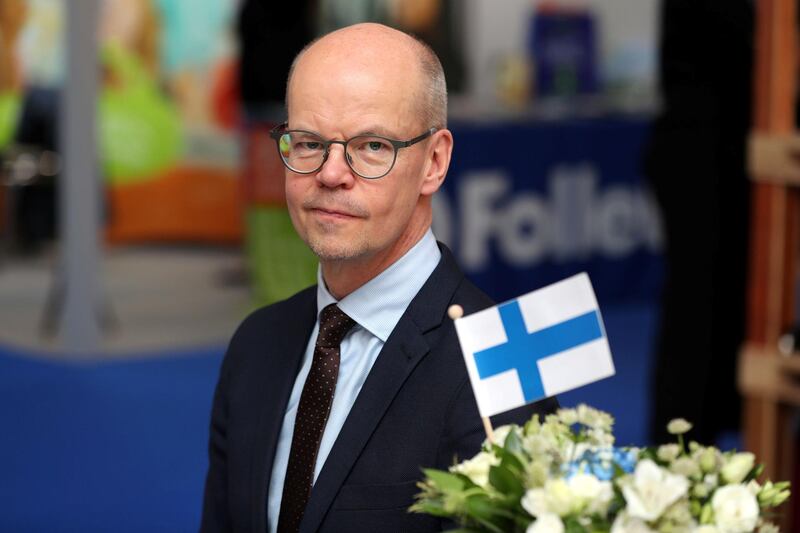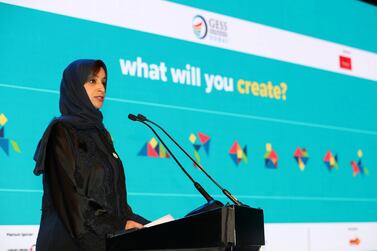Egypt is famous for its pyramids. The UAE is known for its gilded malls and skyscrapers. Finland, meanwhile, is renowned globally for running a gold-standard school system.
The small Nordic nation of just 5.5 million people regularly tops international education league tables.
But ensuring Finnish schools remain a success story is no longer enough, according to Olli-Pekka Heinonen, director general at the Finnish National Agency for Education.
The country has launched a renewed drive to win the world over to its egalitarian vision.
“Our model starts with equity,” Mr Heinonen, a speaker at this week’s Global Educational Supplies and Solutions conference in Dubai, told The National. “We are only 5.5m people; that’s not many. So we have to concentrate on trying to utilise everybody’s human capital.
“But now, the global challenges we’re faced with are so huge, that if I do my job making Finland’s education system the best in the world, it will not help with the global challenges.
“So, I feel I have a strong motivation and incentive to try and increase the awareness of some of the good practice we have found in Finland to other areas of the world.”
There is no emphasis on standardised tests in Finnish schools, with more importance placed on pupil happiness, personal development and nurturing an ability for deep and critical thinking. Pupils rarely receive homework.
Finland’s approach to promoting its educational sector overseas is in evidence at the UAE conference.
About a dozen companies are present, many of them already selling products into the UAE market, with the sector now viewed as a key export.
But can the Finnish model really work in nations such as the UAE? While private schools are not banned in Finnish education, seeking to make a profit from schooling is. School catchment areas are planned out so each school’s intake is socially diverse, while in the UAE, children are generally educated alongside those of similar income levels.
“When you have [private education], there’s always competition, and you need evidence to tell the parents what a good school is,” Mr Heinonen said. “That leads to testing and ends up in a system where you teach for the test, which is very different to what we have in Finland.”
Mr Heinonen visited the UAE’s Ministry of Education and revealed officials had expressed particular interest in Finland’s system of supporting children who need additional help.
Schools are given three tiers of support, in the form of finance or staffing, from government depending on a child’s needs. A similar system could be made to work in both private and public schools, he said.
He also praised moves to improve teacher knowledge. A new licensing regime is being rolled out across the Emirates which require teachers to take training courses and pass tests to continue to teach in schools, while a new teacher training institute has also been recently launched.
He cited the professionalism of teachers in Finland – it can take six years to train – as the single most important factor in the country’s success.
“A large part of it has something to do with how society respects teachers,” said the 54-year-old, who served as a minister in Finland’s education department between 1994 and 1999. Opinion polls suggest that the members of the profession, rather than doctors, lawyers or engineers, hold the most respected positions in Finnish society.
“It’s also very difficult in Finland to become a teacher," he said. "In certain universities it’s one out of ten applicants that gets taken in. It’s more difficult to become a teacher than a lawyer.
“I think the challenge [for the UAE] is teachers are coming with motivation to stay just for a short while, so the commitment might be difficult to build. I understand the minister has created a special training centre for teachers that tries to make sure the quality will be there. I think that’s a really important move.”
Being a Finnish company in the education sector “helps in opening doors”, admits Riku Alkio, such is the reputation of its system.
A former history teacher also from Helsinki, he founded Seppo, an app which allows teachers to create outdoor educational games which students play on smartphones or tablets. It is already being used in around 30 UAE schools.
“We’ve been able to package something from Finland, where there is a big emphasis on outdoor learning, and found it really works in the rest of the world,” he said. “I have been visiting other countries, and I think the difference in Finland is the way teachers are respected in society. I also think that as a nation, we have a feeling that without a quality education system, we won’t survive.”







